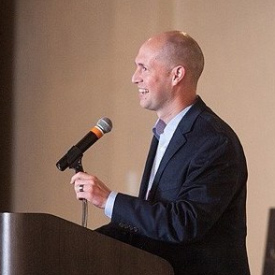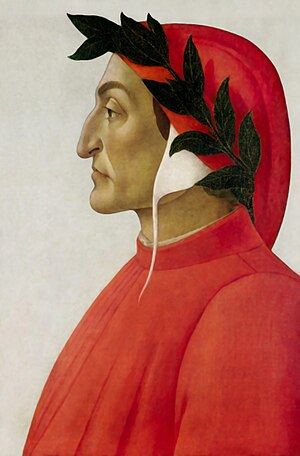Dante & Citizenship
“Midway upon the journey of our life I found myself within a forest dark, for the straightforward pathway had been lost.” Dante’s Divine Comedy opens hauntingly with good reason – the poet had received a death sentence in his home city, Florence, and was faced with execution or exile. When we understand this, his opening words could be deemed an understatement.
Dante was embroiled in Florentine political controversy. His party, the Guelphs, supported papal involvement in the state, while the Ghibellines supported the Holy Roman Emperor. While the Guelphs eventually prevailed against the Ghibellines, the party imploded and split into two other warring factions – the Blacks and the Whites. The Blacks maintained shaky control of Florence while the Whites began siding with the once-despised Ghibellines. As a White Guelph, Dante was selected to speak before the papal courts asking the Pope to reconsider his decision to support the Black Guelphs. During this trip the Black party, with the support of Pope Boniface VII and troops from France, gained firm control of Florence and eliminated their opposition. On March 10, 1302, Dante was charged with crimes against the city (specifically barratry, or selling civil offices) and sentenced to die. He remained an exile until the end of his life in 1321. Given these struggles, it is not surprising that political and social issues are generously woven into Dante’s writings. His magnum opus, The Divine Comedy, records numerous encounters and conversation with former Florentine souls, giving the reader a peek into Dante’s idea of citizenship. In Canto VI of the Inferno, where the gluttonous souls are punished, Dante meets Ciacco, a former Florentine citizen about whom we know little.
Dante says,
“Ciacco, thy wretchedness weighs upon me so that it to
weep invites me; but tell me, if thou knowest, to what
shall come the citizens of the divided city; if any there
be just; and the occasion tell me why so much discord
has assailed it” (VI.58-63).
Ciacco responds by “predicting” (Dante wrote in 1308, but the journey is said to take place in 1300) the 1302 expulsion of the Whites from Florence. Several lines later, Dante inquires about other departed Florentines, to which Ciacco replies, “They are among the blacker souls; a different sin downweighs them to the bottom; if thou so far descendest, thou canst see them” (VI.85-87). The sins that “downweigh” these former citizens are varied.
In fact, Dante finds Florentines throughout the circles of hell and shows particular outrage in these sarcastic words of canto XXVI:
“Rejoice, O Florence, since thou art so great, that over
sea and land thou beatest thy wings, and throughout
Hell thy name is spread abroad” (XXVI.1-3)!
In the Purgatorio, Dante encounters other Florentines who, though enduring often painful purging in Purgatory, at least will end up in heaven. Canto IV records a meeting with Belacqua, a friend of Dante and an indolent soul who has not yet been permitted into Purgatory proper. His laziness is so great that Dante describes him as a “massive boulder” and a “heap” (lines 101, 112). Later, in canto XXIII, Dante spoke to Forese Donati, brother of Corso Donati, the head of the Black Guelphs. It seems clear from their conversation that, before the party split, Dante and Forese were friends, as Dante includes no political invectives in the passage.
Forese does, however, have something to say about the growing immodesty of the Florentine women:
“In vision I already see a time – and it is not far distant
from this day – in which the pulpit shall denounce by
writ the shameless jades that Florentines call ladies,
who go about with breasts bare…What Moslem
woman ever has required a priestly discipline, or any
other, before she would go decently attired” (lines 98-
105).
Florentine depravity jumps out even in Purgatory, prompting yet another sharp tirade from Dante in which he refers to his dear city as a “sick woman who cannot rest, though on a feather bed” (VI.152-153). He attributes the violence and instability of Florence to her willingness to “change coinage, custom, law, and office” (VI.149) rather than repent. Dante reunites with many more souls throughout The Divine Comedy. Suffice it to say that, while journeying through Hell and Purgatory, Florentines were found guilty of every form of sin. Dante critiques every level and aspect of Florentine society – politicians, rulers, common men, and religious leaders – not simply to nitpick and fault-find, but because a society is made up of its citizens and, therefore, the morality of individuals becomes the morality of the society. The poet’s railings against his city were railings against sin, for Dante knew that sinful Florentines produced a sinful Florence.
A culture is not defined by her political and economic stance alone, but by the quality of her citizens.

Brian Phillips
Dr. Brian Phillips serves as a pastor in Concord, NC, where he lives with his wife and their four children.












